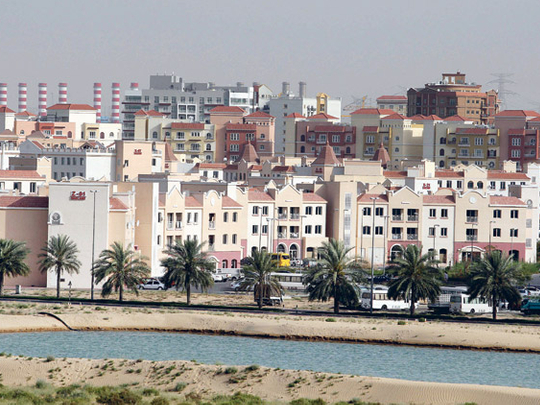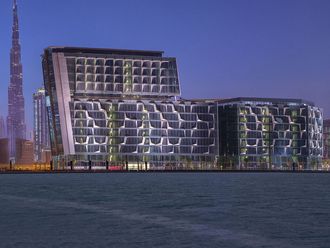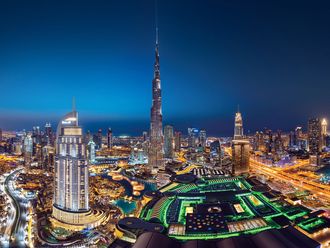
Dubai: Dubai has overcome the late 2008 liquidity crunch, but the city's excess property inventory has not yet found its price, according to Merrill Lynch (Dubai).
Dubai's property prices are expected to fall another 15 per cent this year as there will not be enough people relocating from Abu Dhabi and Sharjah to take up the supply coming online, according to latest industry research.
"Inward immigration from the surrounding emirates will support established locations, but this is not a panacea. Even if all qualifying experts from Abu Dhabi and Sharjah relocated to Dubai tomorrow, we estimate that there would still be 44,000 vacant units in 2010," said Karthik Sankaran, research analyst at Merrill Lynch (Dubai).
Inevitably this should keep the rents down. At the height of Dubai's property boom they equalled those in London and New York. Now, according to the latest research by Bank of America Merrill Lynch, they are about half than their global counterparts. Dubai offers more generous floor space but this still doesn't come cheap.
Downward pricing
Blair Hagkull, managing director at Jones Lang LaSalle Middle East, pointed out downward pricing, created by the softening of demand over the last two years, may cause some difficulties for landlords but are ultimately good for the competitiveness of Dubai.
"Comparing Dubai to global cities is interesting but one should not forget that Dubai is focusing on its important role as a regional economic centre. Demand from global occupants is on the rise due to the city's infrastructure, and are selecting established neighbourhoods."
The investment bank's research indeed highlighted how apartments in near completed Downtown Burj Khalifa can command up to 40 per cent more than Business Bay's Executive Towers, a master-development still in the earlier stages of construction.
According to the BoA Merrill Lynch report, average prices are tipped to dip to around Dh850 to Dh880 a square foot this year.
This would bring prime house prices back in line with that of a maturing, emerging economy rather than an established market, at $380 a square foot, compared to $1800 a square foot in Manhattan for example.
Dubai's mainly expatriate population simply can't support the high transactional volumes of speculators during the boom. The bank sees challenges on creating a true end-user market, as neither regulations nor demographics are a favourable support and in the near term, the cost of ownership is too expensive to lure potential buyers.
As laws and regulations are still being ironed out, end-users shy away from buying anything but completed properties. "Project delays, and in some cases outright fraud, have damaged confidence of foreign buyers," Sankaran said.
Foreclosures are unlikely to result in mass auctions but rather another round of distressed sales. "Market regulations have as so far been protective of developers, in our view, mass liquidations of unsold inventory is unlikely to be permitted," he added.
Transactions at 60 to 70 per cent below peak remain sluggish, due to prices still being pegged to high, the report stated. The bank's research refers to reports from Dubai's leading brokers stating varying figures of residential sales changes, from minus 2 to minus 7 per cent in the first quarter of this year.












